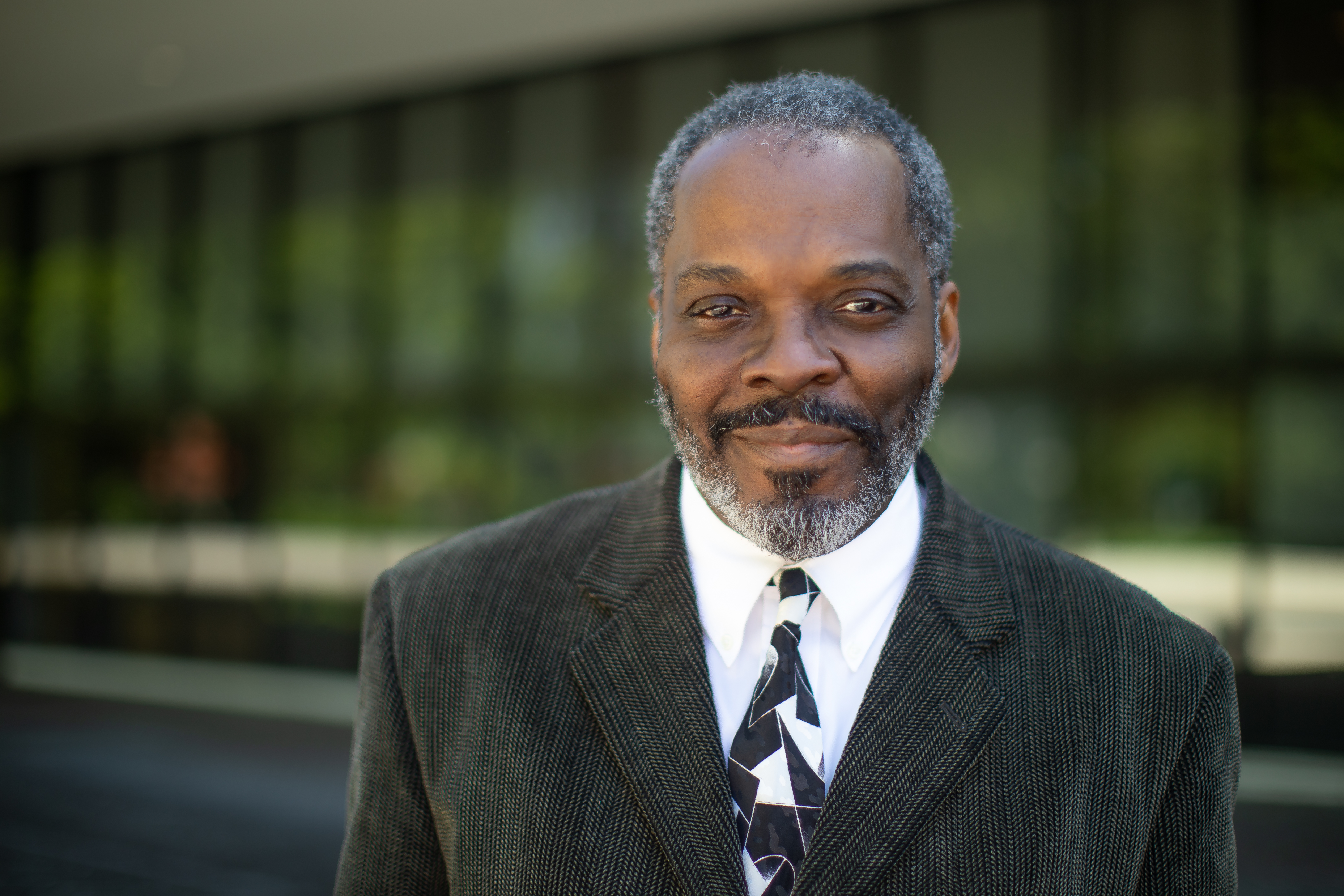Sharp 23L pursues justice, knowledge, and another degree

At 63, Robert Sharp Jr. has been an attorney for nearly 30 years. He’s licensed to practice before the US Supreme Court, as well as three federal courts of appeal.
On May 7, he will receive his master of laws degree alongside students who weren’t born when he opened his Chicago practice in 1994. When he gets the “why do this now?” question, he has a quick and excellent response: “Congressman John Lewis, God bless his soul, said to me once, ‘It is always the right time to do the right thing,’” he said. “I decided to pursue the things in life which, for me, carry the most intrinsic value.” He says the past nine months at Emory have confirmed his belief he made the right decision.
“Have you ever felt that at this particular point in your life, you are where you are supposed to be? It is as if the planets are in alignment with you. It is a surreal experience, it is confirmation, and that is how I feel about my LLM experience,” he said.
Emory Law Professor Michael J. Broyde says, “Robert would have been an atypical student even if he were 27. His deep commitment to living the life of justice in his law practice must have been a burning passion even when he was young. I suspect Robert was wise before he went to law school.”
While Atlanta is notorious for its commutes, Sharp’s carried an extra challenge. He’s on campus three days a week and spends the balance in Chicago, where he practices both civil and criminal law, and cares for his mom, Elece. He’s her only child.
“My 91-year-old mother can live at home in Chicago with a network of caregivers with me at the helm,” he said.
Sharp earned his JD at Antioch School of Law in Washington, DC, which was founded in 1972 by the husband-and-wife team of public interest lawyers Jean and Edgar Cahn, both Yale Law School graduates. Its goal was to send righteous and well-equipped public advocates out into the world, using a clinical model of instruction that’s common on most law school campuses now, but unusual then. In 1975, women represented 50 percent of the student body, and roughly 35 percent were people of color and other minorities (at a time when the average law school female enrollment was about 10 percent).
So, it’s no surprise that Sharp often represents those with little power in the justice system—children, the incarcerated, immigrants, and those on death row. For two years in the late 90s, he was an appellate defender in Chicago, a post-conviction lawyer for clients condemned to death. He’s also represented parents and children in Cook County juvenile justice proceedings. In law school, he worked in clinics to help immigrants seeking asylum, and DC citizens fighting eviction. More recently, he became a member of the US State Department’s Hague Convention Attorney Network last year. The network provides free services to parents involved in international child abductions.
Although he was raised in the church and ordained as a Baptist minister in 2008, Sharp completed his master of divinity degree in 2022 at Chicago’s McCormick Theological Seminary.
“I am a public interest attorney,” he said. “Theologically, the practice of law is a ministry for me. It is my commitment to help those that are underserved and marginalized because they are unable to afford quality legal representation.”
Also, he’s not done.
Sharp will return to Emory this fall to begin work on his SJD (doctor of juridical science) the highest attainable law degree whose graduates often become law professors. Unlike the JD cohort which enrolls over 200 students each year, the SJD program only admits a handful. The statement of purpose Sharpe used to apply for the SJD states he will examine police use of deadly force, the Fourth Amendment’s reasonableness standard, immunity, and the disproportionate number of Black Americans killed during encounters with law enforcement.
“It is important to me because it is a human issue that affects society,” Sharp said. “The topic has to be examined from different perspectives to discover practical approaches to eliminate its causes and effects.” So it’s back to commuting this fall.
“Leaving home and my mom is sometimes challenging” he said. “But when I board my flight to Atlanta, land at Hartsfield airport, catch MARTA to the Decatur exit, and then the Emory shuttle to Clifton Street, it is all worth it.”